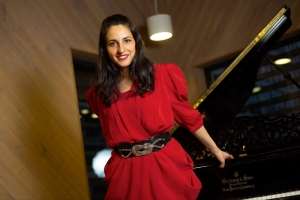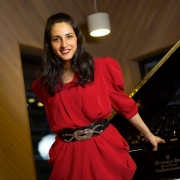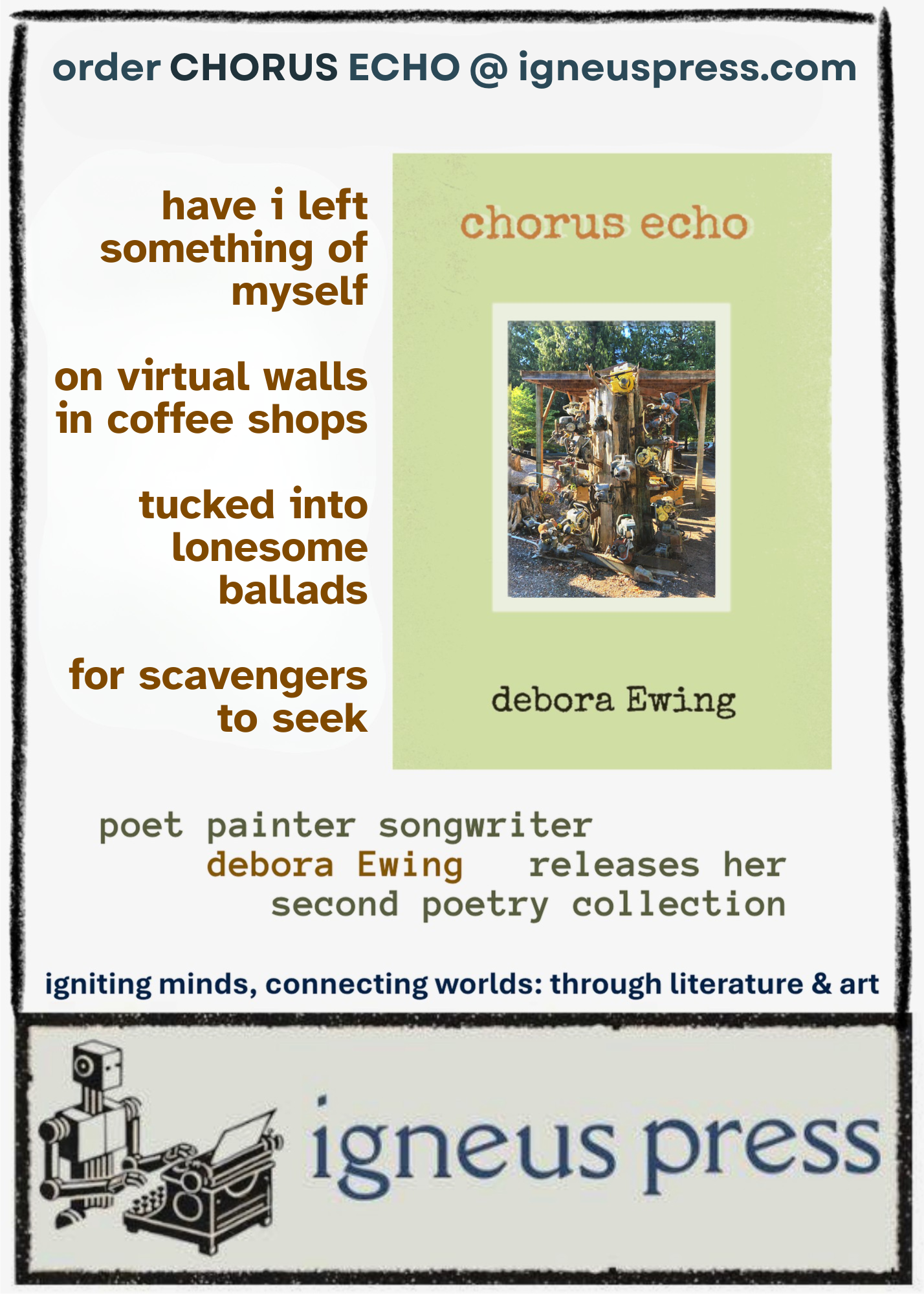What is “Why DIY Music”?
Why cultivating a small, loyal community matters more than chasing big numbers in today’s music industry

Nani Vazana, Sephardic musician and scholar
The music industry is changing faster than ever. For independent musicians, this constant shift can feel overwhelming. The old certainties: labels, managers, and agents as the main gateways to success, don’t carry the same weight they once did. But while the ground beneath us feels unstable, it is also fertile. For those of us willing to build our own path, these changes offer new opportunities to connect, create, and sustain a career on our own terms.
I’ve walked this path myself. Over the last 20 years, I’ve booked and performed 2000 concerts independently, while working with agents who delivered 3-5 shows a year. It wasn’t glamorous, and it wasn’t always easy. But persistence, personal connection, and a focus on community allowed me to create an international performing career, which has now grown into a successful business where I can afford to employ 17 musicians, producers, assistants and agents regularly and inspire change in a community of like-minded musicians through whyDIYmusic.com.
In this article, I want to share some of the lessons I’ve learned, practical strategies, yes, but also a mindset shift that can help you see the changing industry not as an obstacle, but as an invitation.
Beyond the Numbers
In the digital age, success is often measured in numbers: followers, streams, likes. We’re told that the bigger the number, the better the career. But here’s the truth: large numbers don’t necessarily translate into meaningful support. 30K social media followers may scroll past your posts without buying a ticket or an album. But a 1000 people on your mailing list who are truly invested in your music – that’s worth far more.
The writer Kevin Kelly called this the concept of “1,000 true fans.” I’ve seen it on my own journey. A small, loyal group of listeners will not only attend your concerts, but also pre-order your records, contribute to crowdfunding campaigns, and spread the word about your music. They don’t just “like” your content; they believe in your work, and they want to be part of your story.
That’s why I often tell younger musicians: the world isn’t waiting for your music, but a small niche community is. When you discover your micro-niche, those listeners who connect deeply with your sound and your story, you unlock something far more sustainable than chasing mass appeal.
Building Relationships, Not Transactions
How do you cultivate this kind of community? It begins with relationships. Real ones.
When I was starting out, I sent countless emails to festivals and venues. Most of them didn’t reply, and the ones who did often said “no.” It would have been easy to feel discouraged, but I treated each rejection as a “not yet.” I stayed in touch, updated them on new releases, and showed them I was committed to growing as an artist.
Years later, some of those same festivals welcomed me to their stages. This persistence only works if you stay professional, polite, and patient. Think of every interaction not as a sales pitch, but as planting a seed. Some seeds take longer to grow, but with care, they eventually bear fruit.
The same principle applies to your audience. After every concert, no matter how tired I am, I go into the crowd with a mailing list sign-up form. It may sound old-fashioned in the age of social media, but my mailing list has become the backbone of my career. Social media platforms come and go, and their algorithms are unpredictable (Remember MySpace?). But an email list is direct, personal, and entirely yours.
These aren’t just “contacts.” They’re people who’ve chosen to stay connected with you. Treat them with respect. Share your news, but also share your process, your stories, and your gratitude. Over time, this builds trust, and trust is the foundation of any sustainable career.
Your Story is Your Fingerprint
In a world full of talented musicians, what sets you apart isn’t only your skill. It’s your story.
For me, that story is rooted in reviving the Ladino language of my Sephardic heritage. I grew up hearing it from my grandmother, and years later I found myself writing and performing songs that brought Ladino into contemporary life. My albums explore themes of migration, creating your own narrative, preserving fairy tales, and documenting the past through conversations with elders. That thread, connecting an ancient language to modern expression, has become my artistic fingerprint.
Your fingerprint will be different. It might come from your cultural background, your instrument, the themes you explore, or the way you cross genres. Whatever it is, take the time to reflect on it, articulate it, and learn to tell it clearly. When you can explain your uniqueness in a sentence or two, with confidence and authenticity, you give programmers, journalists, and fans something to hold onto.
I’ve seen this over and over: when an artist can clearly express their “why,” they can DIY. People lean in. It’s not about being the best; it’s about being distinct and authentic. That’s what turns casual listeners into true fans.
Wearing Many Hats
One of the hardest parts of being a DIY musician is the sheer number of roles you take on. You’re not just a performer, you’re also a manager, a marketer, a storyteller, an accountant, and sometimes even your own travel agent. It’s easy to feel overwhelmed.
But here’s the flip side: these roles give you freedom. You decide your schedule, your priorities, your touring strategy. You have the power to build a career that reflects your values instead of fitting into someone else’s plan (and they don’t always have time for your plan).
Over time, you’ll find ways to delegate or collaborate. But in the early stages, wearing many hats teaches you valuable skills. You’ll learn how to negotiate, how to pitch, how to budget, and how to communicate your vision. These are the building blocks of sustainability.
Redefining Success
When we strip away the old myths of “making it,” what does success look like? For me, it’s about balance and sustainability. It’s about creating work that matters to me and sharing it with a community that values it.
I don’t measure success only by chart positions or large festivals. I measure it by the people who come back to my concerts year after year, who tell me how my song “Una Segunda Piel” reminded them their grandma also speaks an endangered language, and that it encouraged them to go and ask her about it. I’m here for the people who told me they found connection to their trans child after hearing my song Sin Dingun Hijo Varon live at a concert.
Your songs have a life beyond what you intended for them, they can bring their friends and families along. That’s the circle of support that sustains me. And this is where the shift in the music industry becomes exciting. We no longer have to chase mass audiences to survive. We can focus on cultivating depth instead of scale. A smaller, dedicated audience can provide not just financial stability, but also creative fulfillment.
After all
The music industry will keep evolving. Platforms will change, technologies will rise and fall, and new trends will come and go. But the fundamentals of a DIY career, community, authenticity, and persistence, remain constant.
So my advice is this: don’t chase the world. Find your niche. Nurture the people who already resonate with your music. Tell your story clearly, and tell it often. Be persistent, be professional, and above all, be yourself. Because at the end of the day, it’s not about reaching everyone. It’s about reaching the right ones, the people who will walk alongside you, support your journey, and allow you to keep creating.
That’s why we thrive as DIY musicians: not by waiting for someone else’s permission, but by building our own community, one true fan at a time.
About Nani Vazana
Nani Vazana is a Sephardic singer, composer, trombonist and pianist who revives the endangered Ladino language with contemporary songwriting. Her work explores migration, personal narratives, fairy tales, and oral history. She won the Eurovision for Minority Languages in 2024 representing the Netherlands. Her album Ke Haber charted #11 on the International World Music Chart and #13 on the European Chart. She performs 100 concerts a year internationally and her music was documented by the Library of Congress. In 2019 she founded why DIYmusic.com an online music academy, supporting fellow DIY musicians, and enabling them to launch international careers.
Official website: nanimusic.com
Facebook: facebook.com/nanivazana
Youtube: youtube.com/@nanivazana
Instagram: instagram.com/nanivazana
Spotify: open.spotify.com/artist/2sjVMw6p6q75NIGC44bEqL
Read the FolkWorks review of Ke Haber here.
What is “Why DIY Music”?
Why cultivating a small, loyal community matters more than chasing big numbers in today’s music industry







